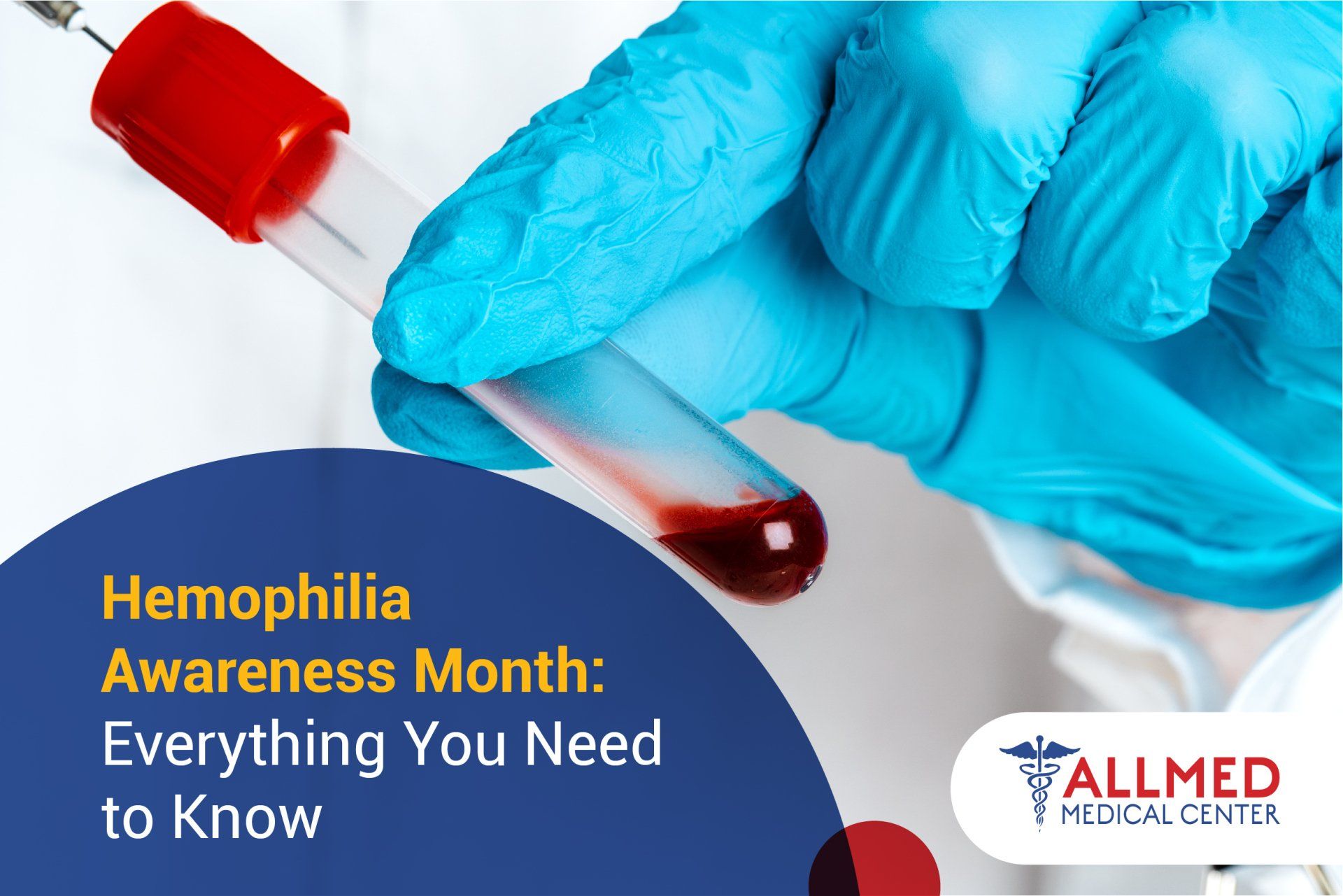Hemophilia Awareness Month: Everything You Need to Know

Hemophilia, a bleeding disorder that typically affects males that causes excessive bleeding. This health condition is usually due to genetic disorders and may have harmful effects on your body if left untreated. The danger comes from external and internal bleeding, depending on how severe the condition is. This March, we're acknowledging bleeding disorders awareness, and it's the perfect time to learn everything we need to know about hemophilia.
This article will highlight its definition, symptoms, causes, and treatment. This blog post promotes national hemophilia awareness month. We intend to spread the word about bleeding disorders and how to manage them properly. So, without further ado, let's dive in!
What is Hemophilia?
Hemophilia is a rare bleeding disorder in which the blood doesn't clot naturally. The blood cells do not contain
blood-clotting proteins to manage the bleeding. How is hemophilia spread? Research says that hemophilia is typically inherited. On the other hand, some people develop hemophilia later in life.
Causes of Hemophilia
The main reason why hemophilia occurs is when a person's blood-clotting factor is absent. In addition, the levels of the clotting factor are too low. When a person with hemophilia bleeds, the bleeding occurs longer than usual and sometimes with excessive amounts.
Hemophilia could result in:
- Excessive bleeding within joints. ( Leads to chronic pain).
- Unusual bleeding in the brain. ( May cause paralysis and seizures with long-term effects).
- Internal bleeding. ( May damage major organs that could lead to death ).
The 3 Types of Hemophilia
Congenital Hemophilia
A person who is born with hemophilia has a low blood clotting factor. Hemophilia A is the most common with a low level of factor 8. Next is Hemophilia B, which has a low level of factor 9.
Acquired Hemophilia
This type of hemophilia is when a person develops the disorder without a family history. It is also typically associated with:
- Autoimmune disease
- Pregnancy
- Multiple Sclerosis
- Cancers
- Drug reactions
Hemophilia Inheritance
Hemophilia most commonly affects the X chromosome. Everyone has two sex chromosomes from each parent. Females receive an X chromosome from the mother and an X chromosome from the father.
Males inherit an X chromosome from their mothers and a Y chromosome from their fathers. As a result, hemophilia typically affects boys and is transmitted from mother to son through a defective gene in the mother. Most women with the defective gene are carriers and exhibit no symptoms.
Risk Factors of Hemophilia
It is much more likely that males will have hemophilia than females since having a family member with hemophilia is the risk factor.
Possible Complication of Hemophilia
Deep Internal Bleeding
Hemophilia can lead to numerous complications, including
deep internal bleeding. Bleeding in deep muscles can cause swelling in the limbs, which can press on nerves and lead to numbness or pain. Depending on where the bleeding occurs, it can cause death.
Bleeding within the Throat and Neck
An individual may be unable to breathe as a result. This condition may lead to complications that may require immediate medical attention.
Joints Damage
Internal bleeding can damage the joints and cause severe pain. Excessive bleeding may lead to arthritis or joint destruction. In addition, it limits mobility and affects the quality of life.
Infection
Since the clotting factors used in hemophilia treatment come from human blood, there is an increased risk of viral infections, such as
hepatitis C. However, thanks to donor screening techniques, the risk is low.
Unfavorable Reaction to Clotting Factor Treatment
Some people with severe hemophilia have an adverse reaction to the clotting factors used to treat bleeding. The immune system develops proteins that keep the clotting factors from working, making the treatment less effective.
The Treatment for Hemophilia
The best treatment for hemophilia is replacing the missing clotting factor necessary for proper blood clotting. This method includes infusing (administering through a vein) commercially prepared factor concentrates. Hemophiliacs can perform the process on their own. It allows them to stop bleeding. In addition, performing the infusions prevents many bleeding episodes.
It is crucial to get good medical care from doctors and nurses who know about the disorder to prevent some problems. Visiting a Hemophilia Treatment Center (HTC) is often the best option. An HTC provides care and health education to help people with hemophilia stay healthy. They also address any issues related to the disorder.
Helpful Tips
- Get a regular checkup (at HTCs)
- Get vaccinated against Hepatitis A and B
- Do not dismiss bleeding - treat it ASAP
- Maintain a healthy weight to ease pressure on your joints
- Get regular checkups for blood infections
Bleeding disorder awareness plays a significant role in our lives. These campaigns intend to educate the people with essential information to act towards the disorder. March disease month is our time to celebrate our health. Let's take on the red challenge and join the red campaign.
AllMed Medical Center is Here for You
Put your health on your top-priority at all times. If you think that you are at risk from hemophilia, or experience any of the signs and symptoms,
call
AllMed Medical Center today. Our board-certified providers are always ready to provide you with top-notch health services to prevent and manage hemophilia and other kinds of bleeding disorders. Be a part of the Allmed Medical Center family today
We're just one click away! At AllMed Medical Center, Your Health is Our Top Priority.
AllMed Medical CentersServing
Greater Sacramento
Allmed Medical Center | All Rights Reserved.









